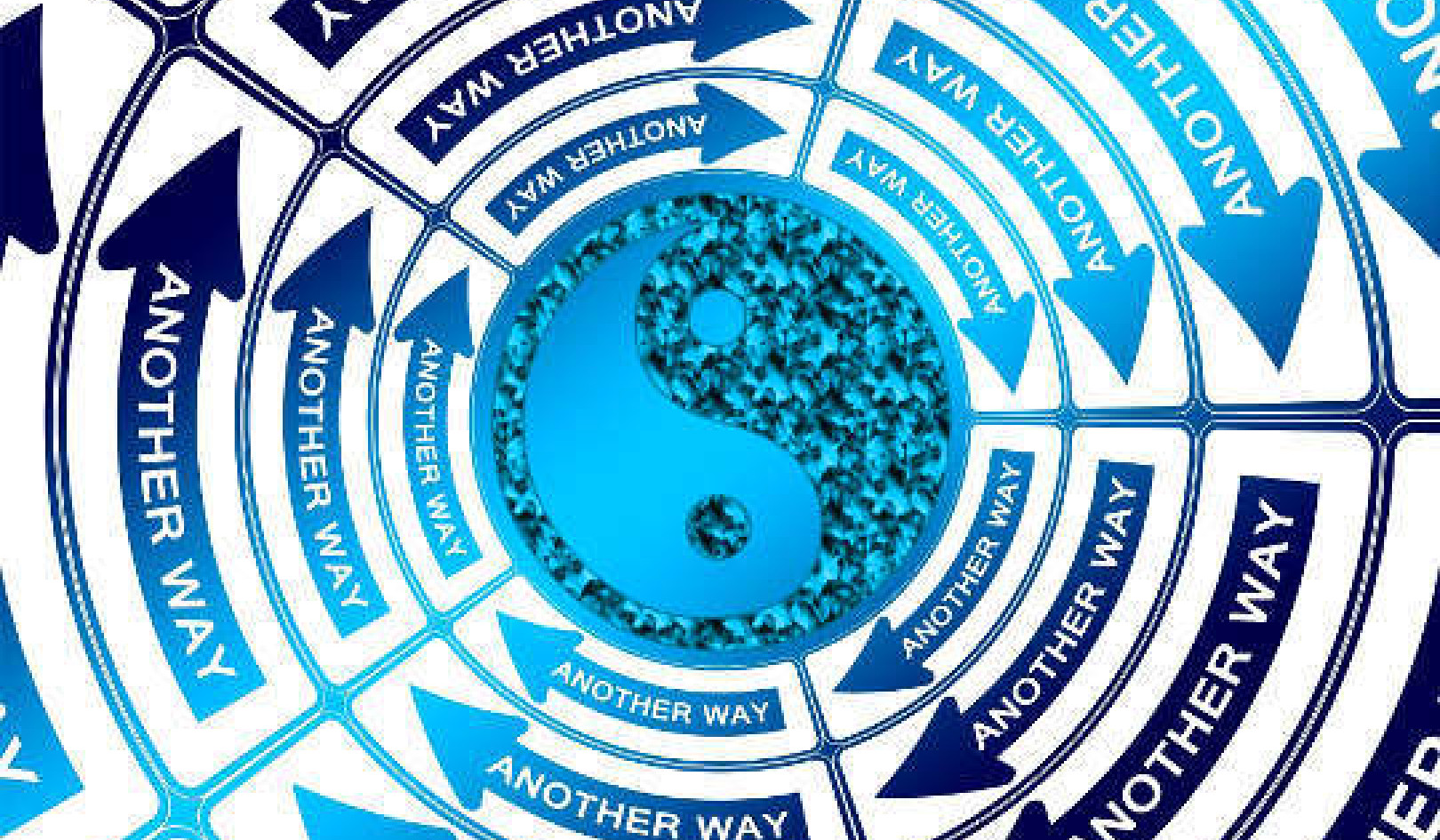
Keeping your eyes and ears open can keep you from falling for the antics of a dark personality. Noel Hendrickson/DigitalVision via Getty Images
Have you ever suffered through tales of greatness from a self-absorbed “friend” who reminds you of Michael Scott from “The Office” – and not in a good way? Have you been betrayed by a colleague out of the blue, undermined on a project by the office mean girl, or had a work friendship dropped altogether without explanation?
If any of these scenarios sound familiar, you may have been dealing with someone who has what psychologists term a “dark personality.” These people score higher on three socially undesirable traits: narcissism, psychopathy and Machiavellianism.
As an organizational scholar, I’ve spent years studying personality traits in the context of the sales profession. In recent work, my colleagues and I focused on the ways people with these dark personalities succeed in sales organizations and the social factors that allow them to extend their successful tenures. Based on our research, here’s a primer on these antagonistic personality types – and how you can unmask examples you encounter in your everyday life.
Defining the dark personalities
Narcissists have the most familiar type of dark personality. They aren’t shy about letting you know exactly how highly they think of themselves. At work, you might find the narcissist bragging about their superior sales skills, even though their performance isn’t much better than the average salesperson. Conservative estimates of narcissism in the general population fall around 6.2%.
While narcissistic behavior can be annoying, it’s usually more tolerable than what the other two dark traits tend to serve up.
Functional – meaning noncriminal – psychopaths are particularly disturbing. Psychologists estimate they comprise up to 4% of the general population. Psychopaths have no qualms about exploiting others for their own benefit. Stubbornly antisocial, functional psychopaths generally have little empathy for others. They’re more concerned about “getting theirs” by any means necessary. Psychopaths are quick to deflect blame and throw others under the bus, even if it means telling lies.
With their impulsive tendencies, psychopaths are prone to telling lies for no particular reason at all. If you find yourself in a group water-cooler conversation and hear someone telling lies that don’t seem to serve any purpose, you might have stumbled on a functional psychopath.
In the workplace, at first a psychopath may seem charming. But eventually you’ll likely find yourself either questioning their motivations, or becoming a victim of their destructive behavior. Though they can be harder to identify than narcissists with their nonstop bragging, psychopaths’ egregious behavior tends to unmask them in the end.
Machiavellians are the most prevalent of the dark personalities, estimated to be about 16% of the population. They get their name from Italian Renaissance statesman Nicolo Macchiavelli, who believed the ends could justify immoral means. Less annoying than narcissists, less abrasive than functional psychopaths, Machiavellians are more subtle in the pursuit of their agendas. They forge ahead regardless of ethical considerations. Like lions, Machiavellians seem benevolent, watching their prey from afar – until they strike. They’re adept at playing the long game – it’s their stealth, patience and subtle manipulation that make them a particularly dangerous dark personality.
Compared with a psychopath’s unnecessary lies, you’re more likely to overhear the Machiavellian in the group telling little white lies that are strategically designed to further a future agenda. For example, you might hear them flattering the colleague you happen to know will be getting a big bonus in the near future – the Machiavellian may be strategically laying the groundwork for being invited to help them spend it.
In short, targets of dark personalities likely find narcissists to be conspicuously and irritatingly self-centered, but generally innocuous. Psychopaths are less obvious in their bad behavior, but their transgressions can be quite severe. Machiavellians are less in-your-face than narcissists, and their nefarious actions are likely to be less severe than those of psychopaths. In the long run, though, a Machiavellian can leave you reeling from an unexpected betrayal to benefit their personal agenda.
As you consider these dark traits and how they show up in interpersonal relationships, you might sense a spark of recognition. Here are five tips for avoiding dark personalities in your own life or minimizing the harm they cause.
1. Don’t fall for first impressions
Dark personalities are experts at making great first impressions, drawing you in with humor and charisma. So, when you meet someone new, be wary of superficial appeal. Narcissists, with their tendency to talk themselves up, are the easiest to spot.
To identify the others, ask questions about past relationships and listen carefully for clues about who this person really is. Because dark personalities are almost always unmasked in the end, they’re less likely to have long-standing friendships – an absence they may explain away by faulting others.
Just be mindful not to overcorrect and ditch a potential new work friend based only on first impressions, either.
2. Share your own (bad) experiences
When you encounter a dark personality and the outcome is unpleasant, you might feel embarrassed for allowing yourself to be fooled or manipulated, or you might feel guilt or shame when you observe someone treating someone else badly. As a result, you might not want to talk about it. Dark personalities exploit that reluctance because your silence helps keep hidden their “core of darkness” – the antagonistic traits that define them.
So to help unmask the dark personality and keep others from meeting the same fate, sharing your experience, with discretion, is critical.
3. Manage up to clue bosses in
Those with dark personalities are good at carefully managing the impressions they make on people in positions of power. So, at work, you can practice managing up to help your boss see the dark personality more clearly.
Share your experiences in a nongossipy way, such as expressing concern about incidents of incivility that you witnessed or requesting advice or guidance in dealing with a very boastful colleague who may be alienating prospects or customers. It may help your boss see through the facade and help you deal with the issue.
4. Plug into your networks
On the flip side, remember to also listen to others. To avoid falling into a manipulator’s web, tap into the network of those around you who share a link to the person in question. See if you can gather references regarding their behavior over the long term. Ideally, you can benefit from others’ knowledge, without having to learn the hard way.
5. Be aware of your own biases
Don’t underestimate the strength of a dark personality’s machinations. When someone shares a personal story of betrayal, be wary of thinking, “that would never happen to me!” Dark personalities are experts in manipulating situations to serve their interests, and you may never notice you’re ensnared until it’s too late. Considering yourself too smart or savvy to ever find yourself in the same predicament is misguided.
As you apply these tips in your life, you want to be wary of becoming an armchair pscyhologist. Anyone can have a bad day – and everyone has. Instead of diagnosing friends, partners and colleagues based on what you think might be their underlying personality traits, focus on any bad behaviors you personally witness, and respond to the actions – not what you think underlies them. Best leave that to the professionals.
If you are in charge of organizations or teams, consider having clear guidance and pathways of communication for individuals to report any concerning behavior they witness. By working together and sharing collective experiences, the rest of us can shine light on the workplace misdeeds of those with antagonistic personalities.![]()
About The Author
Cinthia Beccacece Satornino, Research Director at the UNH Sales Center and Assistant Professor of Marketing, University of New Hampshire
This article is republished from The Conversation under a Creative Commons license. Read the original article.

Related Books:
The Five Love Languages: The Secret to Love That Lasts
by Gary Chapman
This book explores the concept of "love languages," or the ways in which individuals give and receive love, and offers advice for building strong relationships based on mutual understanding and respect.
Click for more info or to order
The Seven Principles for Making Marriage Work: A Practical Guide from the Country's Foremost Relationship Expert
by John M. Gottman and Nan Silver
The authors, leading relationship experts, offer advice for building a successful marriage based on research and practice, including tips for communication, conflict resolution, and emotional connection.
Click for more info or to order
Come as You Are: The Surprising New Science that Will Transform Your Sex Life
by Emily Nagoski
This book explores the science of sexual desire and offers insights and strategies for enhancing sexual pleasure and connection in relationships.
Click for more info or to order
Attached: The New Science of Adult Attachment and How It Can Help You Find—and Keep—Love
by Amir Levine and Rachel Heller
This book explores the science of adult attachment and offers insights and strategies for building healthy and fulfilling relationships.
Click for more info or to order
The Relationship Cure: A 5 Step Guide to Strengthening Your Marriage, Family, and Friendships
by John M. Gottman
The author, a leading relationship expert, offers a 5-step guide for building stronger and more meaningful relationships with loved ones, based on principles of emotional connection and empathy.





















